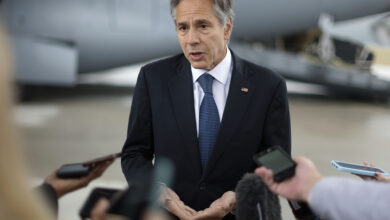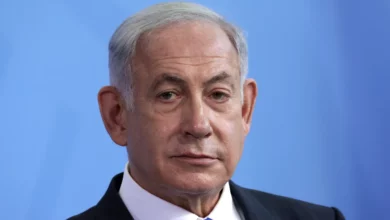
Israel boycotted the United Nations' human rights forum on Tuesday, becoming the first country ever to decline to attend a session that was due to scrutinize its own rights record.
Israel's no-show at the Human Rights Council drew widespread criticism, including a tacit rebuke from the United States which said the UN process of reviewing human rights was a "valuable mechanism" as it was applied to all countries.
The council had been due to examine Israel under the Universal Periodic Review (UPR) of human rights in all UN member states. Its last review was in December 2008, when it attended.
Israel, which would likely have faced criticism for its dealings with the Palestinians, suspended relations with the council last May because of what it called an inherent bias against it.
Foreign ministry spokesman Yigal Palmor told Reuters that Israel had announced it was "suspending indefinitely its participation in the UN Human Rights Council work. This policy has not changed."
Diplomats at the Geneva-based forum hoping Israel might have a last-minute change of heart expressed their disappointment.
The council's president, Poland's ambassador Remigiusz Henczel, called it "an important issue and unprecedented situation". The 47-member forum adopted a motion regretting Israel's no-show and urging it to cooperate in a review to be conducted at its October-November session "at the latest"
Arab states had been poised to criticize Israel's treatment of detainees, settlement expansion and naval blockade of the Gaza Strip which Palestinians say is collective punishment but which Israel says is vital for its security.
"As the only recalcitrant state among 193, Israel's deliberate absence would sabotage the principle of universality," Peter Splinter, Amnesty International's representative to the U.N. in Geneva, said in a blog.
'Non-compliance'
U.S. human rights ambassador Eileen Chamberlain Donahoe, addressing the council on Tuesday, avoided naming the close ally, while stressing that Washington greatly valued the way all countries' human rights records are examined.
"The Universal Periodic Review has been a valuable mechanism both because it is universally applicable to all U.N. member states on equal terms and because it is conducted in a cooperative and collaborative manner," she said.
Speaking for the European Union, Ireland said it was important to maintain universal participation and the cooperative nature of the review mechanism.
Egypt and other Arab delegations were less diplomatic.
"It is a clear case of non-cooperation and non-compliance by a state under review," said Egypt's Wafaa Bassim.
Pakistan's ambassador, Zamir Akram, speaking on behalf of the Organisation of Islamic Cooperation, said that Muslim states had a "a great deal of reservations and anxieties" about postponing the review of Israel.
"What is surprising for us is the level of leverage and the level of understanding being extended to Israel by some countries for its behavior in violation of all of its obligations," he said.
"We wonder if this cooperative spirit would be extended to some other country not so close to some major powers in this world," Akram added in an apparent reference to Washington.
A team of UN investigators, set up by the council last year, is due to report soon on whether Jewish settlements in the Palestinian territories violate international human rights law.




